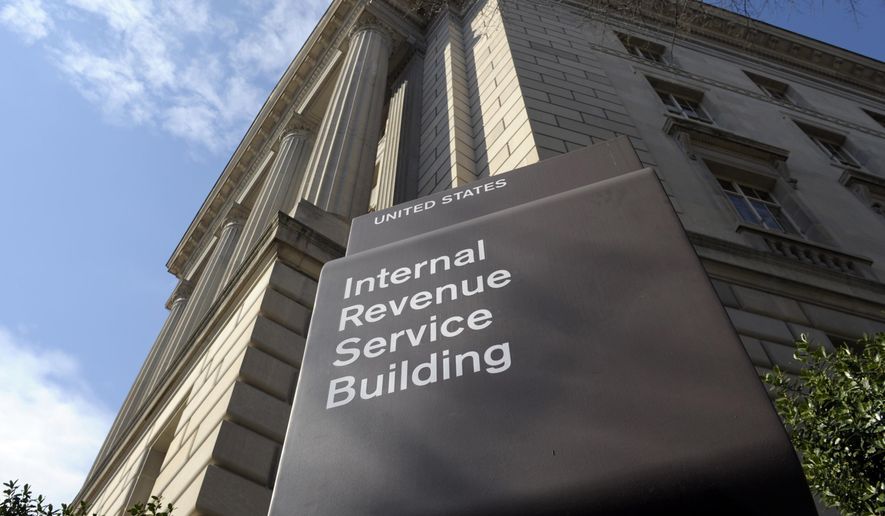OPINION:
Congress has given the IRS $80 billion to hire 87,000 more agents with the hope of bringing in about $200 billion in additional tax revenue over the next 10 years. But last year alone, the federal government spent far more than that — $279 billion — on improper payments.
That works out to more than $2,000 per household in faulty payments — money going to the wrong people or in the wrong amounts.
While improper payments are pervasive across the federal government, just nine out of 78 reported government programs accounted for 94% ($262 billion) of the improper payments made last year.
More than 1 in 5 Medicaid dollars, more than 1 in 4 child tax credit dollars and more than 1 in 3 children’s health insurance program dollars were spent improperly. But the worst offender was the long-term services and supports program run by the Department of Veterans Affairs. Of the $2.6 billion it spent last year, only $708 million (27%) was paid properly.
Unfortunately, the estimated $279 billion in improper payments is surely an understatement. It doesn’t include improper payments in some of the most problematic programs, such as Affordable Care Act subsidies and the disastrous Pandemic Unemployment Assistance program.
The government reported only $78 billion in improper unemployment insurance payments in 2021, but my own analysis found that $357 billion in pandemic unemployment insurance benefits (which were in effect from March 2020 to September 2022) went to people who were not unemployed.
While the pandemic unemployment insurance programs were temporary, improper payments in the federal government are both long-standing and rapidly increasing.
Part of the problem is a lack of prudence; bureaucrats just don’t spend taxpayers’ money as carefully as they would spend their own. More consequential, however, is the massive expansion in the size and scope of the federal government, which now spends four times as much transferring money from some people to others as it does on national defense and the federal justice system combined.
In 2021, 4 of every 5 tax dollars the federal government collected went to transfer payments to people. Virtually all that $3.3 trillion in federal payments — a cost of $25,000 per household — were for things outside the traditional functions of the federal government.
With such massive growth in government payments, efficiency and accountability have fallen by the wayside. Between 2005 and 2021, gross domestic product increased 79%; federal program payments rose 228%; and improper payments skyrocketed 522%.
Despite an array of legislation and regulatory directives that seek to hold federal programs accountable, improper payments continue to run rampant.
For example, federal programs are supposed to check the federal Do Not Pay database before issuing payments. But as Linda Miller, a former assistant director of forensic audits and investigative service at the Government Accountability Office, testified this year, programs habitually ping the database and then issue the payments before receiving the results from the database.
My recent report “As Administration Cracks Down on Taxpayers, Government’s Own Improper Payments Go Unchecked” provides more than a dozen recommendations for policymakers to prevent improper payments and protect the integrity of taxpayers’ money.
Those recommendations, which include using part of the $80 billion in IRS funding to create a new Taxpayer Integrity Office within the Treasury, seek to: confirm that individuals filing for benefits are who they claim to be and are eligible for the benefits they claim; impose accountability on program administrators who fail to follow required checks and who exceed improper payment limits; and limit the number of government programs Americans need to interact with so that they can decide — without bureaucratic approval — where and on what to spend their money.
Instead of cracking down on taxpayers who have to navigate a 7,000-page tax code, the federal government should prioritize spending taxpayers’ money properly within the programs it designs and administers itself.
• Rachel Greszler is a senior research fellow at The Heritage Foundation’s Hermann Center for the Federal Budget.




Please read our comment policy before commenting.